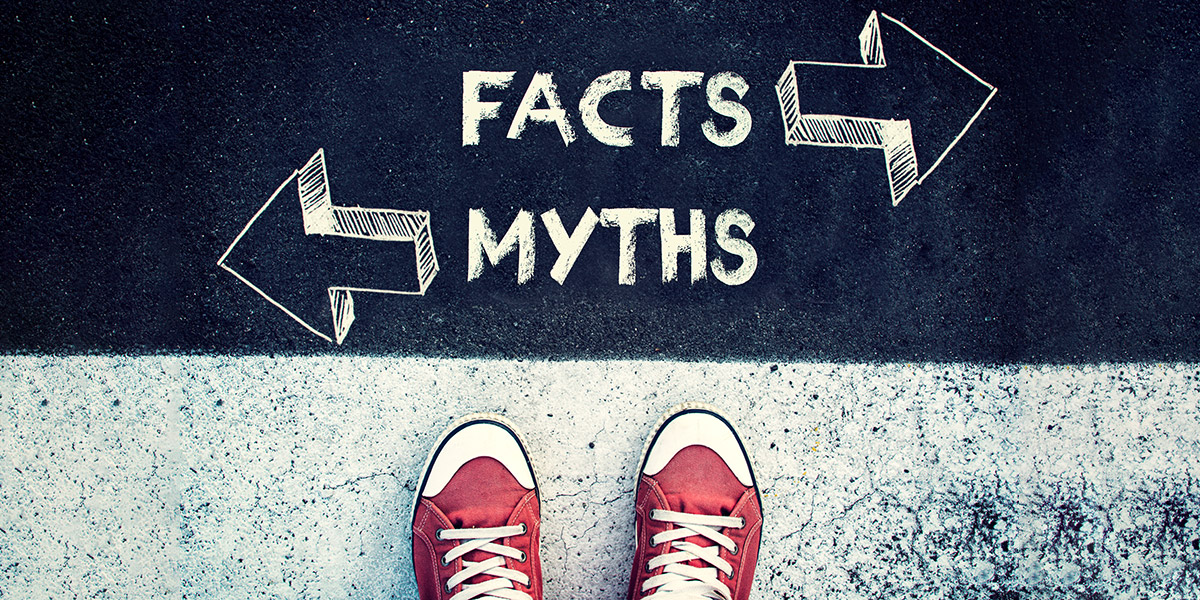Today we know a lot about drugs and alcohol and the susceptibility of substance misuse and addiction. And with an astounding amount of information right at our fingertips, misconceptions and ‘fake news’ around the topic remains. Here we’ll cover some of the misconceptions and offer helpful, sound information, and debunk the myths surrounding substance use and addiction.
Myths vs Reality
Misinformation can create some real challenges and create a mindset that makes it difficult to get well or fall into the depths of substance misuse and addiction. Read on and test your knowledge about the truths of drugs and alcohol.
Addiction happens to only certain people.
At one time or another, we may hear someone say addiction stems from an addictive personality. While some may experience certain situations that can place them at risk for addiction, such as growing up with a parent who used drugs or alcohol or abuse, drugs and alcohol do not discriminate. By their very makeup, these substances are addictive and can affect anyone regardless of their sex, financial circumstance, profession, or ethnicity.
Alcohol is legal and not a dangerous substance.
In the United States, alcohol use is the third-leading cause of preventable death. The number of alcohol related deaths amid the pandemic in 2020 increased 25%. Among those under the age of 65, this death rate surpassed Covid related deaths for this same age group. Alcohol use disorder is prevalent across the ages and approximately 14.5 million persons ages 12 and older sought treatment for Alcohol Use Disorder in 2019.
Prescription drugs prescribed by a doctor are safe.
The prescribing rate for prescription opioids has declined since its epidemic rate of overdose and death of users. Other types of drugs commonly misused include sleep aids, stimulants such as Adderall and Ritalin, and medicated cough syrups. The effects of these drugs are associated with several health risks and pose problems when not used as prescribed or shared with other people.
Enough willpower can help someone stop using drugs and/or alcohol.
By default, addictive substances make changes in the brain and affect the executive functions. These mental processes are how we manage life, such as store memories, control emotional responses, inhibit impulses, organize and plan, and self-monitor. Without these processes, the person is left with reptilian brain and survival mode, and willpower is not enough to turn these back to the on position.
Marijuana is not addictive.
This is a long-held notion, but marijuana use can lead to dependence and withdrawal symptoms, including mood swings, insomnia, restlessness, and irritability. Though dependence does not necessarily mean addiction is inevitable, it can become problematic and interfere with life’s responsibilities, lower inhibitions and cause users to engage in other bad habits, and require higher dosage with long term use.
Alcohol can help relax and make social situations easier.
While a drink at social events is acceptable and can ease social anxiety in small amounts, too much can create the opposite effect. As a depressant, or ‘downer’, alcohol can make people act and behave in embarrassing ways. Drinking too much can make some people weepy, withdrawn, or even aggressive. Poor judgement and decisions can lead to social blunders and create excess anxiety the following day.
There is little hope for drug addicts and alcoholics.
Evidence-based treatment for drug and alcohol addiction is effective for many men and women. Although relapse is often seen and expected, this is not failure on the part of the individual or treatment program, but rather a signal to reevaluate the current strategy and make necessary adjustments. Professional care and treatment in an evidence-based program show far greater results than punishment or criminal conviction.
Knowledge and Understanding About Addiction Can Help Improve Outcomes
With the right information, we can challenge misconceptions and change the narrative about drug and/or alcohol addiction. Addiction is a disease, and when treated as such, many people experience successful outcomes and a healthy life.
If you need more information about how an evidence-based drug and alcohol rehab program can help, contact Pura Vida in Santa Rosa CA. We can provide a confidential assessment for drug and alcohol treatment.





